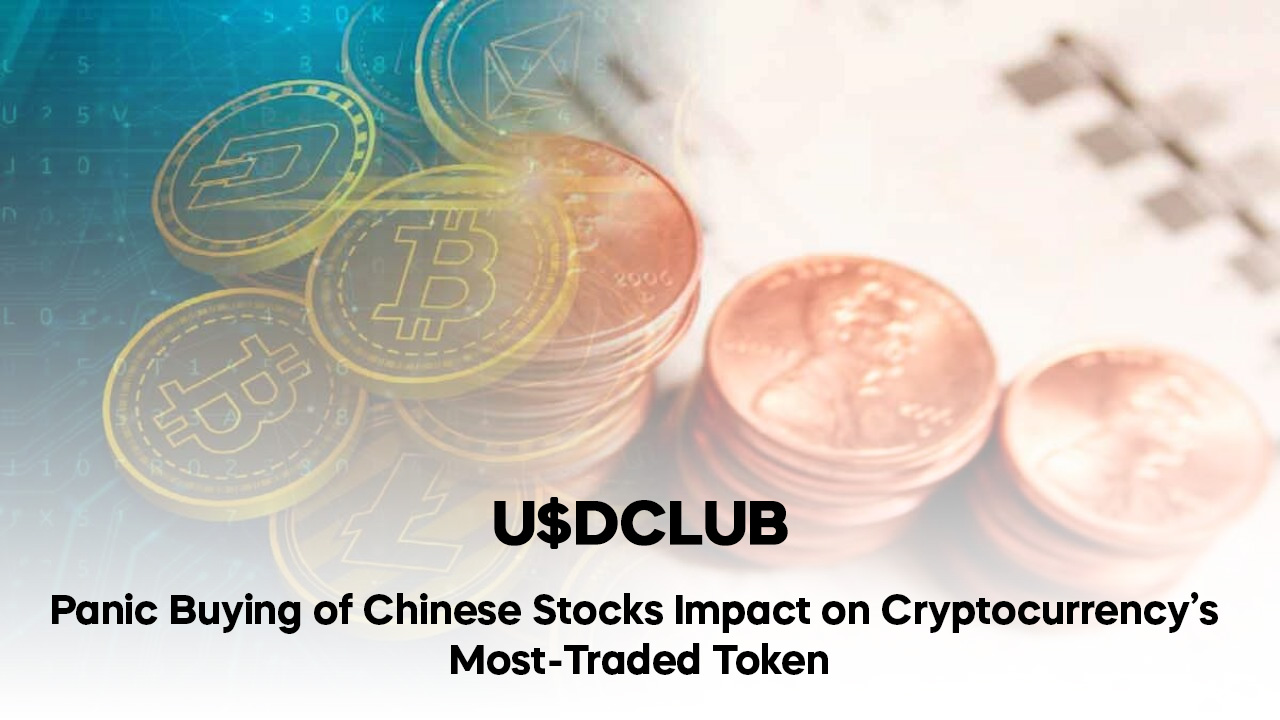In recent days, the cryptocurrency market has experienced significant volatility, particularly concerning its most-traded tokens. One of the primary catalysts for this upheaval is the phenomenon of “panic buying” in the Chinese stock market. Investors are navigating a complex landscape where rising tensions and economic shifts are driving behaviors that significantly impact not only traditional equities but also the cryptocurrency market. This blog explores the relationship between panic buying in Chinese stocks and its subsequent effects on cryptocurrency, particularly focusing on the most-traded token.
*Understanding Panic Buying in Chinese Stocks*
Panic buying occurs when investors rush to purchase assets, often driven by fear of losing out on potential gains or concern over impending losses. Recently, the Chinese stock market has seen a surge in panic buying, prompted by various factors:
-
*Government Intervention:*
The Chinese government has intervened in the economy to stabilize markets and support growth, leading to fluctuating investor confidence. These interventions often spur short-term buying frenzies as investors react to policy announcements or financial reports.
-
*Economic Data Releases:*
Recent economic indicators, including GDP growth rates and manufacturing data, have stirred market sentiment. Positive or negative data can prompt swift reactions, causing investors to either buy into stocks they believe will rally or liquidate positions they fear may decline.
-
*Global Economic Conditions:*
Rising global interest rates, inflationary pressures, and geopolitical tensions have created uncertainty in financial markets. Investors may be shifting their portfolios in response to these factors, resulting in increased activity in Chinese stocks.
*The Ripple Effect on Cryptocurrencies*
The panic buying of Chinese stocks has reverberated through the cryptocurrency market, particularly impacting its most-traded token, Bitcoin (BTC). Here are some key ways this dynamic has unfolded:
-
*Investor Behavior:*
As investors flock to Chinese stocks, many are reallocating funds from other asset classes, including cryptocurrencies. This shift can lead to a decline in demand for cryptocurrencies, driving prices down. Investors often seek perceived safety in equities during uncertain times, impacting the inflow of capital into digital assets.
-
*Correlation Between Assets:*
The correlation between cryptocurrencies and traditional markets, especially during times of heightened volatility, has become increasingly evident. Many cryptocurrencies are viewed as risk-on assets; when investors are wary of the stock market, they may be less inclined to invest in digital currencies, leading to decreased trading volumes and price fluctuations.
-
*Market Sentiment and Speculation:*
Panic buying in one market can influence the overall market sentiment, creating a ripple effect. If traders believe that stock prices will continue to rise, they may speculate less in cryptocurrencies, viewing them as a more volatile and riskier investment during uncertain economic conditions.
*Bitcoin: The Most-Traded Token*
Bitcoin has long been recognized as the most-traded and widely accepted cryptocurrency. However, its price dynamics are not immune to external pressures, especially from traditional markets.
-
*Price Volatility:*
Recent panic buying of Chinese stocks has led to heightened volatility in Bitcoin’s price. Traders closely monitor developments in the stock market, often adjusting their crypto holdings in response to equity market movements. This volatility can create opportunities for traders but also increases risks for long-term investors.
-
*Market Influence:*
The influence of major financial markets on Bitcoin cannot be overstated. When traditional markets experience turmoil or rapid movements, Bitcoin often reacts sharply. Investors may interpret stock market signals as indicators of broader economic conditions, impacting their confidence in Bitcoin as a store of value or hedge against inflation.
-
*Shifts in Trading Patterns:*
As traditional markets react to panic buying, Bitcoin trading patterns may shift. Traders may adopt more defensive strategies, reducing their exposure to Bitcoin in favor of assets they perceive as having lower risk. This shift can result in decreased trading volumes, further exacerbating price fluctuations.
*The Broader Implications for Cryptocurrency Markets*
The interplay between panic buying in traditional markets and cryptocurrency dynamics highlights broader implications for the crypto landscape:
-
*Market Maturity:*
The relationship between cryptocurrencies and traditional markets underscores the growing maturity of the crypto market. As more institutional investors enter the space, cryptocurrencies are increasingly influenced by macroeconomic trends and global financial markets.
-
*Diversification Strategies:*
Investors need to consider diversification strategies that account for the interconnectedness of asset classes. Understanding how traditional markets impact cryptocurrency investments can lead to more informed decision-making and risk management.
-
*Long-Term Outlook:*
While panic buying may create short-term volatility in cryptocurrencies, long-term investors should remain focused on the fundamental factors driving the growth of the digital asset space. Innovations in blockchain technology, increasing adoption, and regulatory developments will continue to shape the future of cryptocurrencies, independent of short-term market movements.
*Conclusion*
The recent panic buying of Chinese stocks has significantly impacted cryptocurrency markets, particularly Bitcoin as the most-traded token. As traditional markets experience volatility, investor behavior shifts, leading to reduced demand for cryptocurrencies and heightened price fluctuations. Understanding these dynamics is crucial for investors seeking to navigate the evolving landscape of digital assets.
As we look to the future, it is essential for investors to remain vigilant, stay informed about market trends, and develop strategies that account for the interconnected nature of global financial markets. In a rapidly changing environment, adaptability and informed decision-making will be key to successfully navigating both the equity and cryptocurrency markets.
For more updates on the latest developments in the cryptocurrency market and insightful investment strategies, stay tuned to USDCLUB.us, where we provide timely news and analysis from the world of finance.

